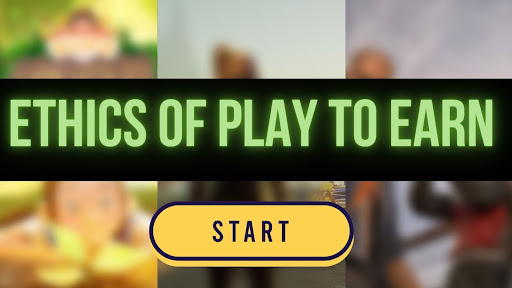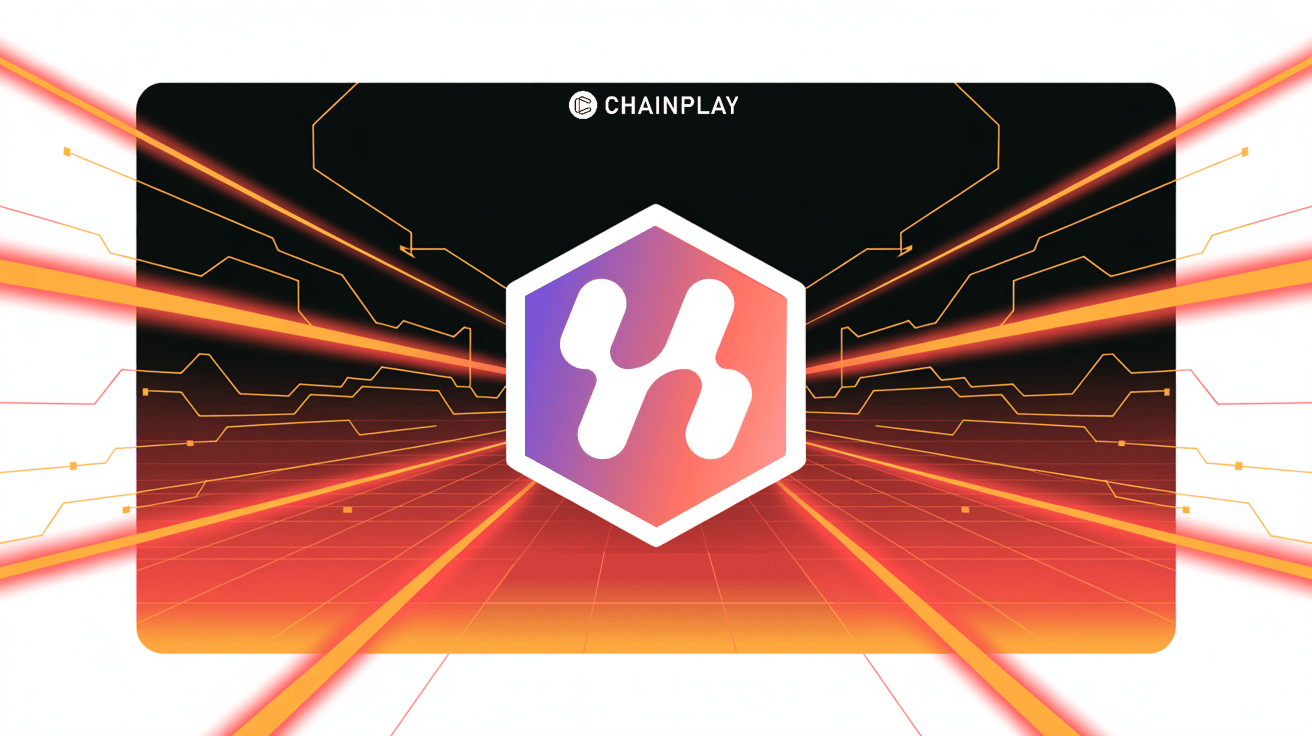Research
The Ethics of Play-to-Earn Games: Balancing Fairness and Incentives in the Quest for Real-Life Rewards
ChainPlay
•
2 years ago
Share :

Play-to-earn games are a growing trend in the gaming industry, offering players the opportunity to earn real-life rewards or cryptocurrency by achieving certain milestones in the game.
Play to earn games are simply what their name tells you. Gamers who either previously paid to play or engaged in free to play models have now been presented with the opportunity to earn rewards while playing a game.
These rewards can be earned through various methods, such as completing quests, leveling up, or winning competitions. These games often involve a strong element of skill, as players need to perform well to earn rewards.
Some examples of play to earn games include online games that offer in-game currency that can be traded for real-world money, or games that allow players to earn cryptocurrency by completing certain tasks.
While this business model has the potential to provide exciting new opportunities for players and game developers, it also raises important ethical considerations.
Let’s take a dive into two of these issues and explore their ethical considerations within the context of play to earn.
Issues
1. Unfair advantages
One of the key challenges of play-to-earn games is the potential for creating unfair advantages for wealthy players.
In some cases, players with deep pockets may be able to purchase in-game items or power-ups that give them a significant advantage over other players.
For example in Mir4, a blockchain RPG game, players need to boost their stats and level to become stronger than another player. Usually, players do this by battling monsters or accomplishing quests.
Image: Mir4 farming
However, wealthy players can circumvent this by buying badges in the shop that cannot be produced if they were free to play players.
Image: Mir4 in-game shop
These items help you boost your stats, levels and even get a better chance to get rare items. As such, players who have the monetary means would rather opt to buy this item than spend numerous hours accomplishing quests and grinding opponents.
This can lead to a situation where the outcome of the game is determined more by a player's financial resources than by their skill or effort. Moreover, from a game design perspective, it can be difficult to balance the game to ensure that players who spend money on in-game items are not overly powerful, while also not making the game too difficult for players who do not spend money.
However, for those who fault to balance this, it can lead to an overall less enjoyable experience for all players. Web3 builders who design their games primarily on rewarding wealth might lead F2P players to abandon the game since these players will feel that the system is against them.
2. Unequal distribution
Moreover, the distribution of rewards in play-to-earn games is often highly unequal.
The vast majority of players may only earn small rewards, while a select few can earn significant amounts of money or valuable in-game items. This can create a sense of unfairness and may even lead to resentment among players who feel that the system is rigged against them.
This might pertain to players who got in early or managed to secure their NFTs or slots during its beta phase. Although this creates a sense of urgency that is good for sales, it might also discourage players who feel that they have little chance of achieving significant rewards. This can be especially frustrating for players who put a lot of time and effort into the game but still see little return.
Alternatively, this could also mean players who managed to take advantage of an opportunity to buy in-game items or NFTs at a discounted price before their value increased. These players may be able to earn significant rewards by selling their items at a higher price, while other players who missed out on the opportunity may feel that they have been left behind.
For example, last month Star Atlas announced a major discount on its NFT ships it offered as big as an 80% discount on multi-million dollar ships. Purchasing this limited-edition discount will give players a massive jumpstart on farming that players who went in late won’t otherwise have.
Solutions
Addressing unfair advantages in multiplayer online games has been a problem since traditional video games went into popularity. Now with blockchain games becoming more popular, the issue of unfair advantages is even more pressing given the complexity of web3 economies.
To address unfair advantages, we have to look into a couple of solutions that web3 game developers could implement into their models.
Some game developers have implemented fair play policies that aim to level the playing field and prevent players from gaining an unfair advantage through financial means.
For example, some games may limit the number of in-game purchases that a player can make, or provide multiple paths to rewards that do not require a financial investment.
A notable solution is to focus on a cosmetic-based economy like the top games in F2P web2 like Fortnite and League of Legends. In EV.IO, players can freely enjoy its FPS shooter deathmatch without initial investment. Players can seek to earn by purchasing NFT guns, but the guns themselves won’t provide an additional stat boost.
The NFT offers purely a visual enhancement that serves as a gateway for premium players to earn. Most importantly, players who have these NFTs don’t deal additional damage that will make the game pay to win, enhancing the user experience for all kinds of players.
Image source: EV.IO
The recent notable blockchain games that implement a similar economy are Big Time. The game released an early access pass back in May 2022 that gave users exclusive NFT drop benefits that rewarded users who tuned in early. However, since its developers value fair play, the early access won’t contain unfair rewards that make them stronger.
Image source: BigTime
In fact, fair play is within the game’s design pillars. Thus assuring the game won’t implement play-to-win features in the future.
Another possible solution to this problem is for developers to provide players with ways to earn in-game resources through skill and hard work, rather than just by spending money. For example, some games allow players to earn virtual currency or other rewards by completing quests, winning matches, or achieving certain milestones.
This can help to level the playing field and make the game more enjoyable for players who don't have a lot of money to spend.
In Splinterlands, developers hold skill-based tournaments that reward winners who come out on top. Prizes are distributed based on where they finish in the tournaments. Additionally, players can also earn by winning in Ranked battles, receiving better rewards as they climb.
Image source: Splinterlands
Final Thoughts
The ethics of play-to-earn games is a complex and evolving field that requires careful consideration of a range of factors.
By balancing fairness, incentives, and ethical considerations, game developers can create NFT games that are fair, engaging, and rewarding for players while minimizing the potential risks and challenges associated with this business model.
In conclusion, play-to-earn games offer an exciting new way for players to earn rewards and even make a living through their love of gaming. However, it is important for developers and players to be aware of the ethical considerations and to take steps to ensure a fair and sustainable system for all.
This can include implementing systems that allow players to earn rewards without spending money, implementing strict rules and regulations regarding the use of in-game items or power-ups, and ensuring that rewards are distributed fairly among all players. By addressing these issues, play-to-earn games can be a fun and rewarding experience for everyone.
Share this article
#EV IO
#Splinterlands
#MIR4
#Star Atlas
Latest News

Inside the STEPN GO Golden Sneaker Drop and Football-Inspired
3 hours ago

Hyperion: A New Way to Join IDOs on Binance Wallet
4 hours ago

Binance Introduces Pump.fun Style Token Launch Model
8 hours ago

$100K Tournament Series Begins with Hellmaster Open
yesterday

Binance Expands Trading Options with New USDC Pairs
yesterday
Related articles

Explore Splinterlands, a blockchain trading card game. New Voucher system updates simplify gameplay, enhance rewards, and involve the community in future developments.
ChainPlay
•
11 months ago

Experience Star Atlas: stunning Unreal Engine 5 graphics, secure blockchain tech, and new Crew Cards for strategic gameplay and fleet upgrades.
ChainPlay
•
10 months ago

Star Atlas partners with SingularityNET to integrate AI agents, enhancing gameplay with adaptive NPCs and dynamic environments in its Web3 space universe.
ChainPlay
•
3 months ago



